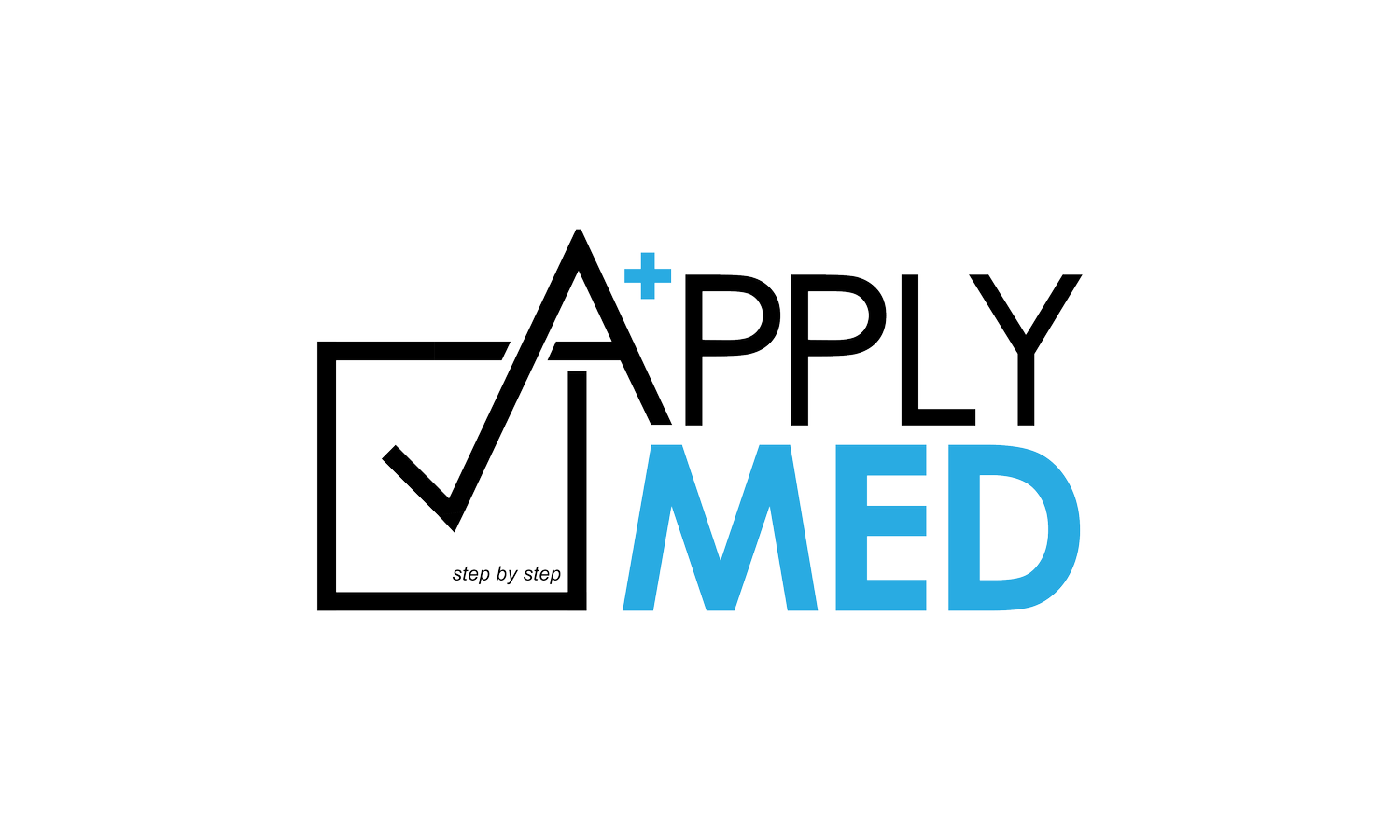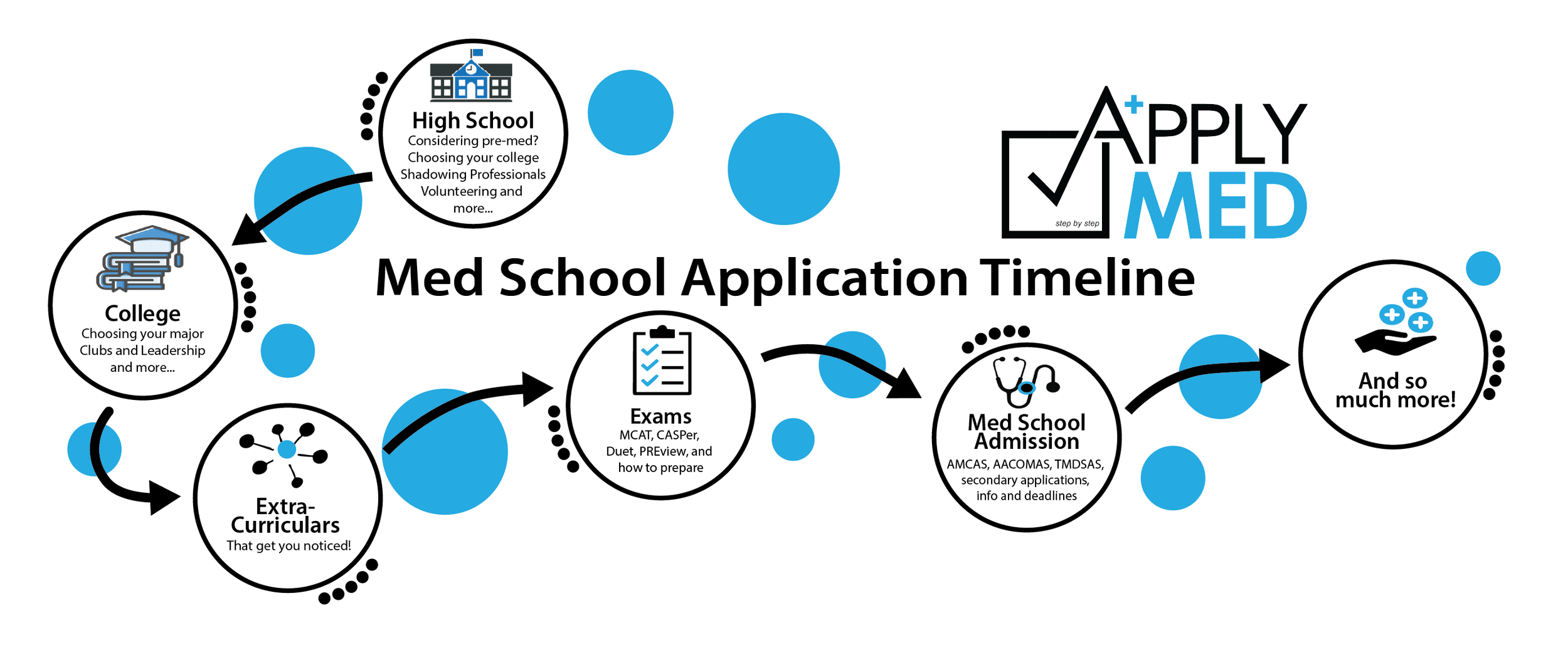Everything you need to know about how to apply for med school successfully
Everyone agrees. Applying for med school is hard!
Developed by a first-year medical student, Apply Med Step-by-Step is a comprehensive guide to make navigating through medical school applications easier and with less stress.
Our program includes videos, documents, templates and other resources to help you during every step of the process.
Get started on your road to med school today!
Navigating the complex world of medical school applications can be overwhelming. That’s why we’ve created this comprehensive guide to walk you through every step of the med school application process.
We’ve got you covered. From understanding the basics to mastering the art of crafting compelling essays.
What’s included…
Our program includes 40+ Educational Videos that cover:
VIDEOS
General Topics
High School
College
MCAT
Extracurriculars
Gap Year
Resume/CV
Primary Application
Secondary Applications
Finances
Successful Interviews
Getting Accepted
Didn’t Get Accepted
and other Miscellaneous considerations
GUIDES
TEMPLATES
AND MANY OTHER EASY ACCESS RESOURCES
Why Apply Med?
This fully transparent program focuses on ALL aspects of the application process and is based on actual first-hand knowledge. Once purchased, you will have lifetime access to a myriad of resources and educational videos, all for one affordable investment.
The topics covered will benefit everyone from highschoolers and pre-med college students, to matriculating medical school students.
It includes copies of the actual resume/CV, personal statement, applications, and MCAT reports, of the platform developer, resulting in his acceptance to medical school.
ApplyMed FAQs
-
A: It’s never too early to start! The medical school application is a comprehensive process that explores all aspects of what makes you unique as an applicant. Knowing the entire process through this course will give you the tools to build qualities and experiences that will enhance your application regardless of how early it is for you.
-
A: Yes! There is an entire video dedicated to this exact question with included resources that will guide you in creating your own timeline.
-
A: No! This is a one time purchase which will grant you lifetime access to all of the resources included.
-
A: I am constantly staying up to date with the application process, and any changes that are made by the application services will be reflected in the resources available to you!
-
A: On average, the videos range from 5-15 minutes. There are a comprehensive amount of videos that will provide substantial material while remaining relatively shorter in length.





